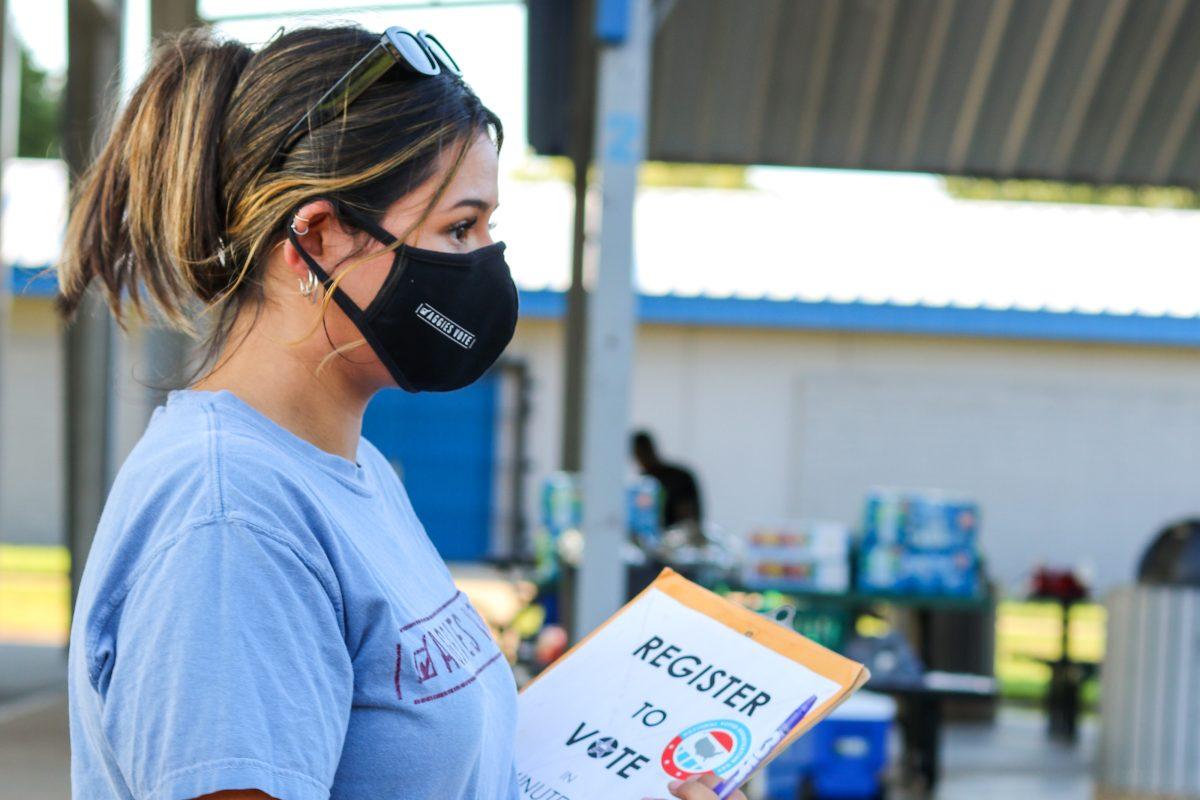In the ongoing struggle against voter suppression, students are doing their part to fight back by registering people to vote and encouraging students to go through training to create the next wave of poll workers.
Students and student-run organizations have stepped forward in finding ways to minimize voter suppression and help others exercise their right to vote.
Poll Hero was created in July by a group of six Princeton University students to help register students to vote and to become poll workers, said Leo Kamin, co-founder of Poll Hero. Some cities have seen a deficit of over 5,000 poll workers, Kamin added.
“You need more than just the right to vote, to vote,” said Kamin. “You need to be able to do it efficiently and that requires poll workers to keep locations open.”
After a month, Poll Hero has helped 11,000 students become registered to vote, said Ella Gantman, co-founder and director of collegiate outreach for Poll Hero. She said their group reaches out to campus organizations like sports teams, sororities and clubs in focus cities that need more poll workers.
“So many cities have seen voter suppression because of these voting stations closing,” said Gantman. “I’d say our model responds to voter suppression by focusing specifically on those cities where we see that happen.”
The shortage comes from the health risks involved during COVID-19, specifically for senior citizens, because in the past they made up the majority of poll workers, said Gantman. She encouraged students to help out, since every county pays their polls workers, ranging from $50 to $300 for the day.
Other groups have tried making voting easier like Aggies Vote, a nonpartisan voter education and voter registration organization on campus focused on increasing voter turnout in Brazos County.
“We do ‘Party at the Polls’ where we escort people to the polls,” said Sofia Lozano, president of Aggies Vote. “We’ll table 100 feet away from the MSC and walk them to the polls and give out pizza and candy just so that they’ll go vote.”
Aggies Vote tables all over campus with members available to answer questions about voting and has collectively registered around 4,000 new voters, said Lozano. To be able to register voters, there is a certification training required to become a volunteer deputy registrar through the local county.
Registering through a volunteer deputy registrar can make it easier to change addresses, ask questions and instill confidence in voters, said Lauren Devenzio, an individual volunteer deputy registrar for Brazos County.
“I’m doing a registration party in like an hour,” said Devenzio. “I have 10 people coming over.” After registering with a VDR, the voter is given a receipt that indicates certified registration, added Devenzio.
“Voter suppression is certainly out there, but having a VDR to help you with the process and making it as easy and simple as possible gives you the ability to vote confidently,” said Devenzio.
Last year, Texas led the South in the number of polling places closed since 2013, according to The Texas Tribune. Two counties in Texas closed enough polling locations to violate state law by falling below statutory minimums, although Brazoria County clerk has issued a statement the closings were inadvertent and would not happen in 2020. Combined with strict voter ID and vote by mail laws, these factors could worsen chronically low voter turnout in Texas.
This story is a collaboration between The Battalion and upperclassmen in Texas A&M’s journalism degree. To see the online copy of the “All Things Voting” print edition, click here.









